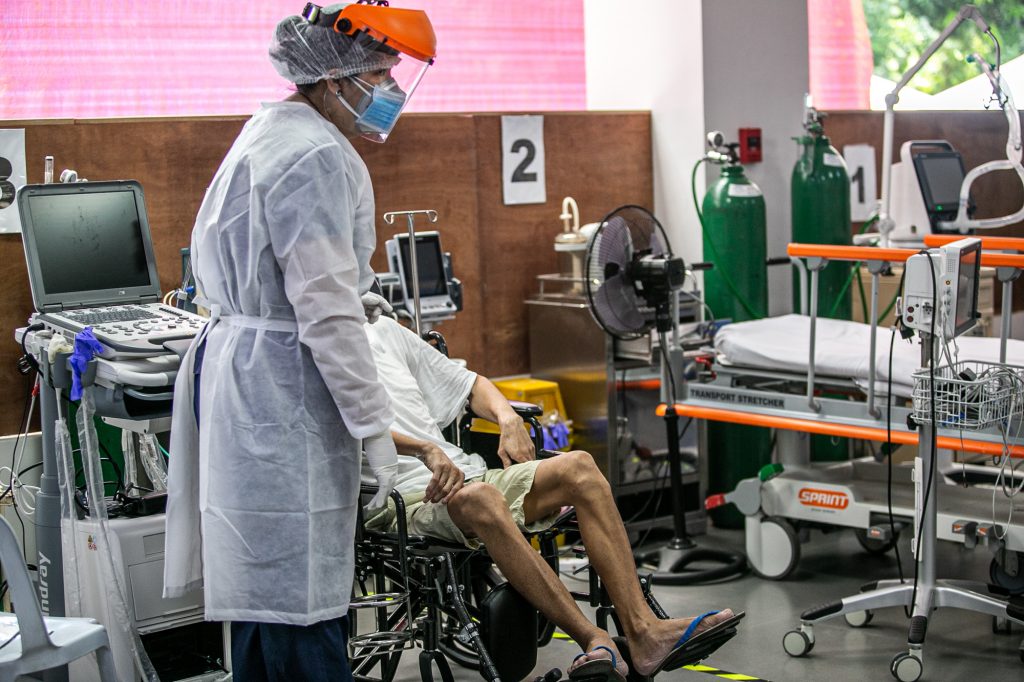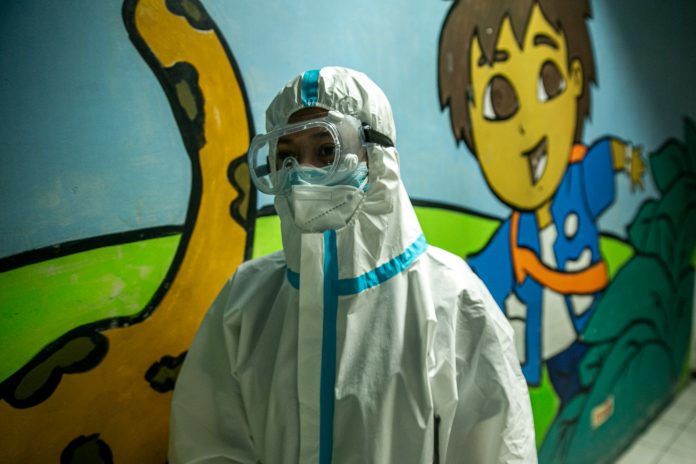The Order of the Ministers of the Infirm, or the Camillians, launched on April 10 in Quezon City a center that promotes “humanized healthcare.”
The St. Camillus Center for Humanization in Health, which offers pastoral training and formation programs to healthcare workers, aims to advance the “development and engagement of pastoral care, health, and wellness programs for the humanization of health care.”
Camillian Father Dan Vicente Cancino, executive secretary of the Commission on Health Care of the Catholic Bishops’ Conference of the Philippines, said the center is both an infrastructure and an advocacy program.
“First and foremost, it is an advocacy for a humanized healthcare where we put the human person at the center of everything, not the service or the diagnosis,” he said.
The priest said it is now common that when a sick person seeks medical attention, “we see the person based on the disease but not his or her totality as a human being.”
“We want to put emphasis on the ‘care,’ not just on the ‘cure.’ It means we have to look at its entirety, including the mental health and spiritual care,” he said.
The center offers modules on pastoral care in health for medical workers such as COVID-19 Infection Prevention and Control in Home and Community Setting; Grief Counseling; Pastoral Care for the Sick and the Elderly; Compassion Fatigue; Role of the Health Care Workers in Humanization of Health; Understanding Dementia; Hospice; and Palliative Care, among others.
Father John Jay Magpusao, executive director of the center, said each module “can be tailored for specific target participants.”

The priest said the center aims to assist healthcare workers “to become more effective ministers in the world of health.”
“When we say humanization of health care it means a state of well-being that involves affection, dedication, respect for the other, that is, to consider the person as a dignified, complete, and complex being,” he said.
“It means caring for the sick on a whole different level anchored on the fundamental aspect of being human which is to treat others with kindness and compassion,” added the priest.
The center has health and wellness programs as well as online stress debriefing and self-care activities.
It offers a unique but critically relevant service dubbed “center for listening,” which provides a by-appointment service for online, phone, or face-to-face meetings.
In his message during the virtual launching on March 9, Cardinal Peter K. A. Turkson, prefect of the Dicastery for Promoting Integral Human Development in Rome, said the need to humanize healthcare is now “most felt.”
“When we are sick, injured, or facing an existential life crisis, we are vulnerable and experience suffering. Our greatest human need in such dark moments is loving-kindness and compassion,” said the cardinal.
He said, however, that it is unfortunate that some young generation medical graduates “find it difficult to initiate a respectful and compassionate dialogue with their patients while working in stressful and crowded conditions.”
The prelate said there is “a need to include human sciences” in the training of healthcare personnel and encourage them to look at the human person not just view the disease process “as the sole target of medical care.”
The Order of the Ministers of the Infirm was founded by St. Camillus de Lellis, patron saint of doctors, nurses, hospitals, and the sick.
The order, which was formally established in Italy in 1591, and its Philippine Province in July 2003, commits itself to a “contextualized proclamation” of the Gospel values by promoting human dignity in their service to the sick.









